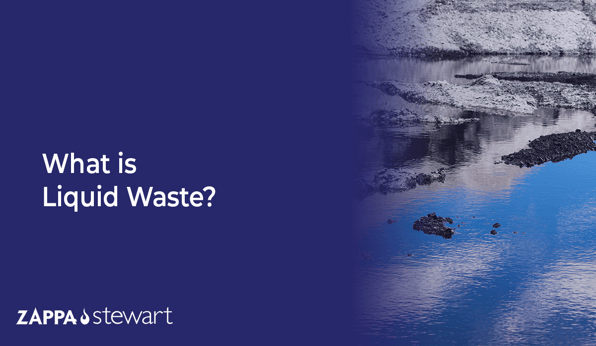Facts About Reclaim Waste Uncovered
Table of ContentsReclaim Waste Fundamentals ExplainedThe Single Strategy To Use For Reclaim WasteThe Reclaim Waste IdeasWhat Does Reclaim Waste Mean?Getting The Reclaim Waste To Work
Explore the types, incidents, and kinds of liquid waste. Domestic sewage waste refers to the waste and items from a domestic septic system. This kind of waste is created by human beings in homes, schools, and various other buildings. This only consists of septic tanks that have a drainpipe field. The correct management and disposal of residential sewer waste call for fluid waste to be moved to a sewer therapy plant where the appropriate approaches and tools are applied to cleanse and take care of waste.
Industrial waste commonly consists of possible dangers, such as combustible products or a mixture of fluid and solid waste products, and calls for a much more advanced and thorough disposal process. The disposal of commercial waste commonly includes the filtration of waste prior to transport to make certain secure and correct disposal. Hazardous waste is created from by-products and overflow of industrial procedures and production.
This kind of waste can not utilize the same sewage management transportation or procedures as septic or business liquids. The commercial waste monitoring process needs the examination and screening of fluid waste prior to it undergoes the disposal process (liquid waste disposal melbourne). Drainage waste is the fluid waste that originates from drainage and excess stormwater in extremely inhabited locations or cities
Runoff waste can trigger contamination and flooding if not dealt with correctly. Discover more about sewage system cleansing and waste management. Making sure appropriate waste management can protect against disasters and reduce ecological harm. Both people in residential settings and specialists in business or production sectors can gain from understanding the procedures and regulations of liquid waste monitoring.
Not known Details About Reclaim Waste
Contact PROS Services today to discover our waste administration and disposal solutions and the appropriate ways to care for the fluid waste you produce.
(https://reclaimwaste.godaddysites.com/f/efficient-liquid-waste-disposal-removal-melbourne)This supposed 'wastewater' is not just a crucial resource but, after treatment, will be launched to our land, waterways or the ocean. Used water from toilets, showers, bathrooms, kitchen sinks, laundries and industrial processes is understood as wastewater.

water used to cool machinery or clean plant and devices). Stormwater, a form of wastewater, is drainage that streams from agricultural and metropolitan locations such as roof coverings, parks, gardens, roads, paths and rain gutters into stormwater drains, after rainfall. Stormwater moves unattended straight to local creeks or rivers, ultimately getting to the sea.
The Ultimate Guide To Reclaim Waste
In Queensland, most wastewater is dealt with at sewer original site treatment plants. Wastewater is transported from residential or industrial sites via a system of sewage systems and pump stations, understood as sewerage reticulation, to a sewage therapy plant.
The Division of Natural Resources advises city governments concerning managing, operating and preserving sewage systems and treatment plants. In unsewered locations, city governments might call for homeowners to install individual or home sewer treatment systems to deal with residential wastewater from toilets, kitchens, restrooms and laundries. The Division of Natural Resources authorizes making use of household systems when they are shown to be reliable.
The majority of stormwater receives no therapy. In some new subdivisions, therapy of some stormwater to get rid of trash, sand and gravel has started making use of gross contaminant traps. Wastewater therapy takes place in 4 phases: Eliminates solid issue. Bigger solids, such as plastics and various other things mistakenly discharged to sewage systems, are gotten rid of when wastewater is travelled through displays.
Wastewater then moves right into big tanks where solids work out and are removed as sludge. Oil and residue are skimmed from the surface area. Utilizes little living microorganisms called micro-organisms to break down and eliminate continuing to be dissolved wastes and fine particles. Micro-organisms and wastes are included in the sludge. Removes nitrogen and phosphorus nutrients that might create algal blooms in our rivers and threaten marine life.
4 Easy Facts About Reclaim Waste Explained
Nutrient removal is not readily available at all sewer therapy plants since it calls for costly specialist tools. Clear fluid effluent created after therapy may still include disease-causing micro-organisms - liquid waste disposal.

This normally means wastewater needs to be treated or impurities eliminated prior to it can be discharged to rivers. Many wastewater streams right into the sewage system. Under the Act, city governments administer approvals and licences for environmentally pertinent activities (ERAs) entailing wastewater launches that could have a regional effect. The division provides approvals and permits to ERAs involving wastewater releases that might have a local or statewide effect.
Reclaim Waste Things To Know Before You Buy
Tracking offers valid information concerning water quality and can verify that licence conditions are being fulfilled. The details gotten with tracking gives the basis for making water top quality decisions.